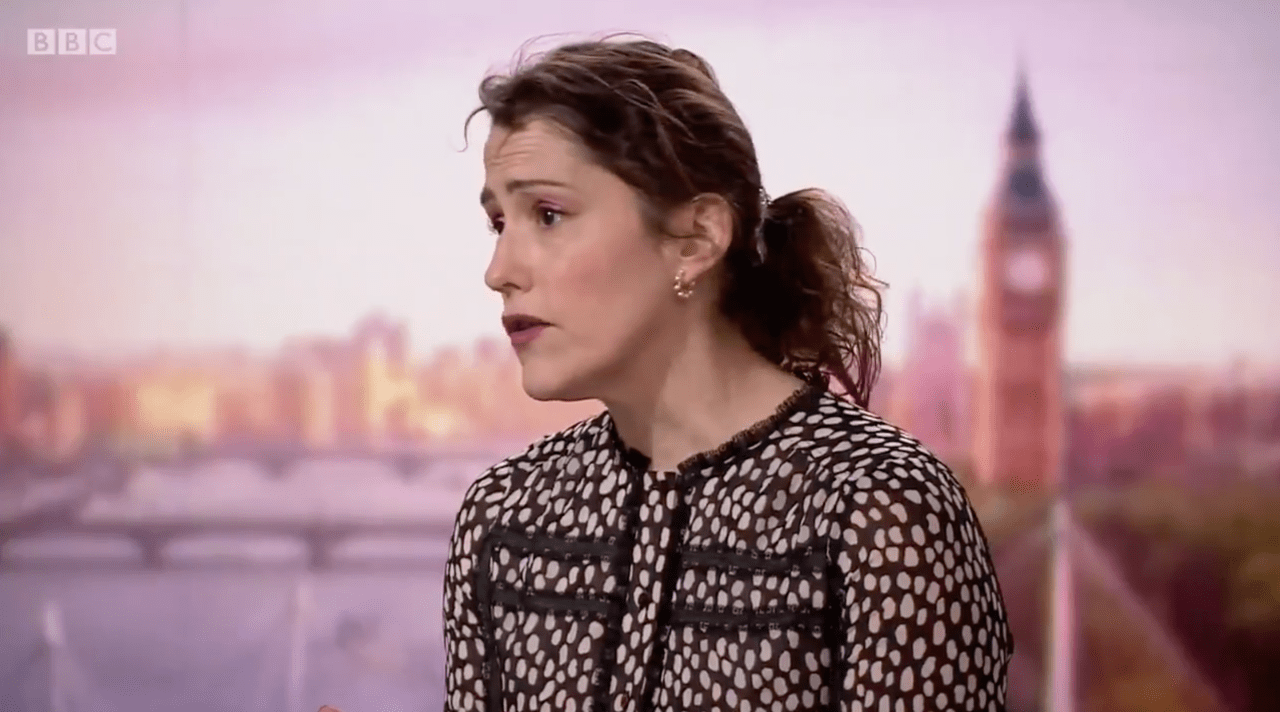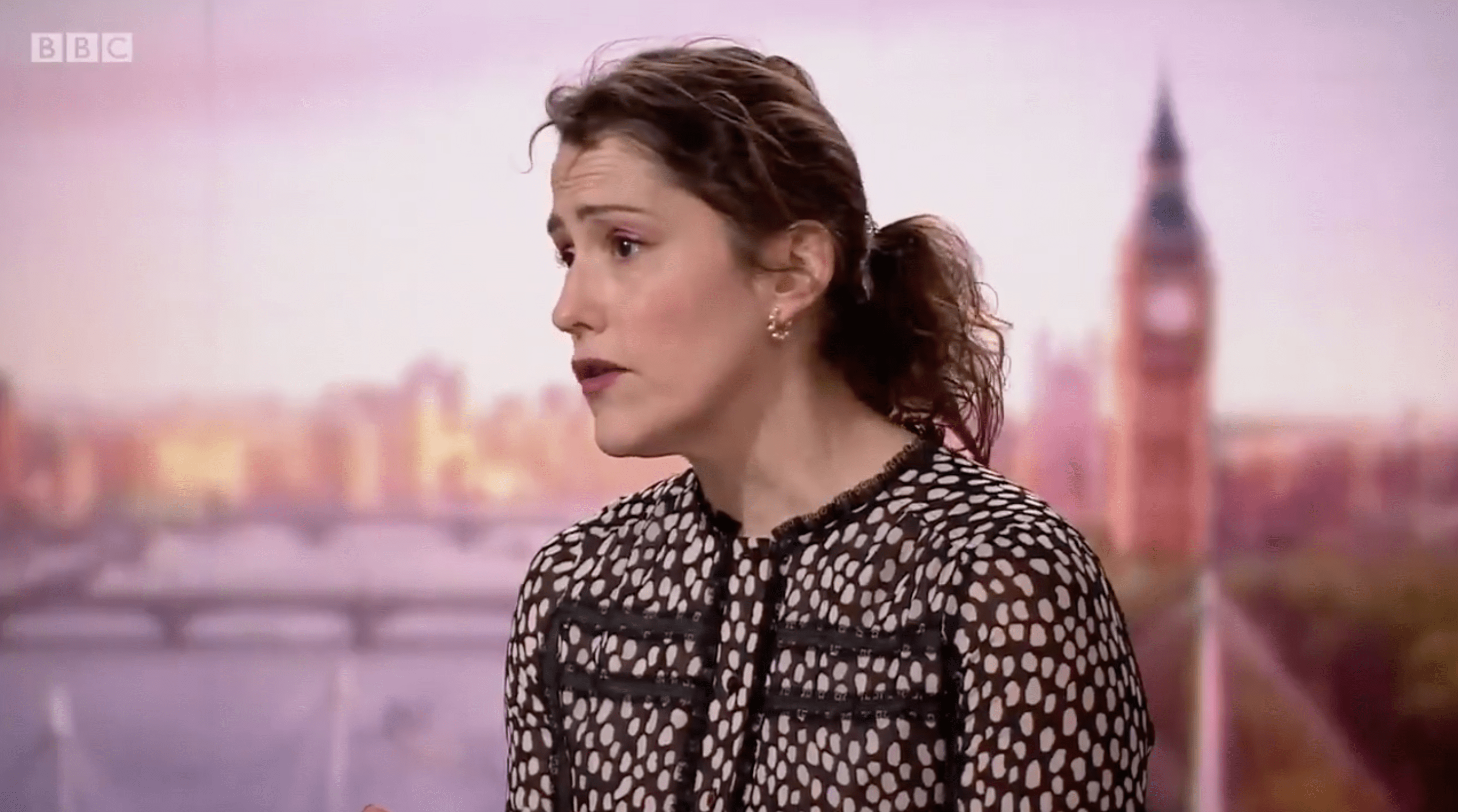Victoria Atkins – Police response to Sarah Everard vigil ‘very upsetting’
On Saturday, a vigil was held on Clapham Common in memory of Sarah Everard, a 33-year-old woman who disappeared from London’s streets earlier in March and whose body was later found in a Kent woodland. After talks between the police and the organisers of the event broke down, the vigil was held unofficially, and the Metropolitan Police have been criticised for their conduct in managing the crowd of several hundred people. Andrew Marr spoke to the Home Office minister Victoria Atkins about the incident, which saw scuffles break out and four arrests made:
AM: What did you think when you saw [these scenes]?
VA: I found it very upsetting of course. We know that the overwhelming majority of those who went there had a peaceful experience… This is why the Home Secretary has asked the Met Commissioner for a report… I think it’s right that they explain their actions.
PM is ‘personally committed’ to tackling crimes against women
On Friday, the Home Office reopened its public survey into violence against women and girls in response to Everard’s death. Sky News’ Jayne Secker, who filled in for Sophy Ridge this morning, asked Atkins whether it was appropriate to be conducting another listening exercise when many would be desperate to see government action taken sooner rather than later:
VA: In fairness… we have the Domestic Abuse Bill going through Parliament… This is real action that will have a huge impact… The next step is looking at violence in the street and other forms of violence against women and girls… The Prime Minister is personally committed to this, the Home Secretary is, and I am, and we want to listen to members of the public.
Law Commission will look at misogyny as a hate crime
Parliamentary amendments have been tabled to the government’s Police, Crime, Sentencing and Courts Bill which propose to make misogyny an eligible criterion for a hate crime. Marr asked Atkins why the government was resistant to accepting the amendments as they are:
VA: The way in which hate crime is drafted at the moment, it is very much… framed on protecting minorities… Half the population is not a minority. Because of the complexities of this, we have asked the Law Commission to look at hate crime more generally, and they are looking at misogyny.
We ‘absolutely support’ the right to peaceful protest
Marr raised concerns that the aforementioned Police and Crime Bill would allow the government to take tougher action against protests that it might find embarrassing. Atkins replied that the bill was intended to prevent protesters from obstructing essential public services as part of their modus operandi:
VA: We absolutely support and recognise the right to peaceful protest… It’s trying to get that balance between peaceful protests and allowing member of the public to get on the bus to go to work… This legislation is very much aimed at those very disruptive protests… Preventing people from accessing… a hospital… isn’t, I don’t think, a reasonable way in which to protest.
Jess Phillips – Women are getting less safe ‘year on year’
Marr and Secker both interviewed Jess Phillips, the Shadow Minister for Domestic Violence. Phillips said that she felt the government’s whole approach was in need of a serious overhaul in order to make women a priority:
JP: The government don’t currently have a strategy for perpetrators of domestic abuse, which we’ve asked for repeatedly… We’ve got to get [things] right… because on every single metric we are failing. And on every single metric women are getting less safe year on year, if you look at the data for convictions and if you look at the number of women coming forward.
Sentencing for rape should be minimum of seven years in jail
Marr asked Phillips what she would like to see from the Police and Crime Bill, which is back before the House of Commons tomorrow:
JP: For a start, I think you should get more [jail time] for rape than you do for defacing a statue… You currently can get more for fly-tipping than can get for stalking… In the case of stalking, I think the sentence needs to be doubled. In the case of rape… that should be extended… to a minimum of seven years.
Police got vigil ‘wrong at every single turn’
Phillips was also highly critical of the police handling of the vigil for Sarah Everard:
JP: I think that the police got it wrong at every single turn… All day yesterday, and the day before, the police… did not try and find a way to work with women who are sad and angry and upset… to be able to just go to Clapham Common. There are million ways in which that could have been organised but the police put their foot down.
Diane Abbott – Cressida Dick ‘has questions to answer’
Neither Atkins nor Phillips were keen to point the finger at the Metropolitan Police Commissioner Cressida Dick, whose authority has been dented by the response to the vigil. The former Shadow Home Secretary Diane Abbott seemed to sound a harsher tone:
DA: I think it’s important to remember that the local police in Lambeth wanted the peaceful vigil to go ahead, were willing to work with the organisers… It was Cressida Dick and people at Scotland Yard that insisted on banning it altogether… so she does have questions to answer.
Ian Diamond – Only a third of crimes against women are reported to the police
Professor Sir Ian Diamond, the head of the Office for National Statistics told Marr that the extensive research undertaken by his organisation over many years appeared to show that as many as two thirds of rape and serious sexual assault cases against women never reached a police officer’s ears:
ID: We have reported over many years… [that] there is very large under-reporting, both of rape and of assault which includes penetration… In more recent figures, we show that only about a third are reported to the police, and many fewer of those go to prosecution.
EU trade ‘starting to see a pick up’
The discussion also centred on the issue of trade with the European Union. The ONS reported earlier this week that exports to the EU have dropped by 41 per cent, and imports by 28 per cent compared with the previous January (amounting to a net decrease of £5.6 billion and £6.6 billion worth of goods respectively). Diamond offered his take on the figures:
ID: I point to two reasons. Firstly… there was border disruption at the end of December and the end of January, partly due to Covid, and partly due to the end of the transition period, and secondly a number of companies… had stockpiled… I don’t think we should take January as really indicative of the long-term future. Indeed, I would say [we] are starting to see a pick up.
ONS census gender guidance was not correct
And finally, the High Court found last week that guidance supplied by the ONS ahead of next Sunday’s census was unlawful. The question relates to gender self-identification, with the guidance wrongly telling people that they may state the gender given on their passport or driver’s licence. Mr Justice Swift ruled instead that there were only two valid documents relating to this issue, since both of the previous examples can be changed at the holder’s will. Sir Ian defended the ONS’s approach, but said they would not be challenging the ruling:
ID: We are asking exactly the same question as we have since 1801. It’s a very simple question – ‘what is your sex?’… The judge has taken the view that we should simply have the advice being that your sex is that on your birth certificate, or a gender recognition certificate… We will accede to the judge’s request.







Comments